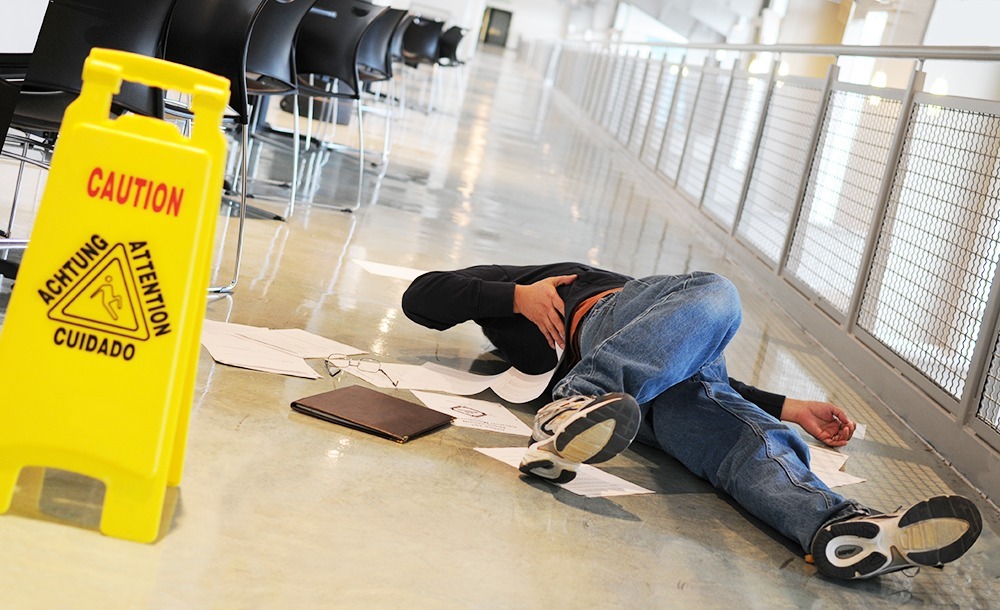When Property Owners Fail to Fix Hazards: Your Rights and How to Take Action
Share:
Imagine you’re strolling down the aisle at your favorite grocery store, reaching for that perfect snack, and bam—you slip on a spill that no one bothered to clean up. Or maybe you’re visiting a friend’s home, and you trip over a broken step that’s been neglected for weeks. These kinds of accidents aren’t just bad luck—they’re often the result of a property owner’s failure to maintain a safe environment. But who’s responsible when the property owner drops the ball?
At DuFault Law, we understand that navigating a premises liability case can be overwhelming, especially if you’ve been injured due to a property owner’s negligence. Here’s everything you need to know about the legal duties of property owners, and how they affect you if you’ve been hurt on someone else’s property.
What Does the Law Say About Property Owners’ Responsibilities?
Whether it’s a local café, a shopping mall, or even your neighbor’s house, property owners are legally required to keep their premises safe for visitors. This responsibility is part of premises liability law, which holds property owners accountable for accidents that occur because they failed to address hazardous conditions. These can range from slippery floors and broken stairs to poorly maintained lighting or tripping hazards in the parking lot.
But property owners’ responsibilities aren’t one-size-fits-all. They vary depending on the type of visitor:
Invitees: This is the highest level of responsibility. If you’re visiting a property for business (like shopping in a store or going to a restaurant), the property owner must ensure the premises are safe, regularly inspect for hazards, and make timely repairs.
Licensees: If you’re on someone’s property for social reasons (like visiting a friend’s house), the owner has a duty to warn you of any known hazards but doesn’t have to inspect the property as thoroughly.
Trespassers: Property owners have the least duty to trespassers, but they still can’t intentionally harm them. In some cases, if trespassers are regularly on the property, owners might be expected to take precautions.
The Importance of Safe Conditions: What Property Owners Must Do
When it comes to maintaining safe conditions, property owners are expected to inspect, repair, and warn visitors about potential dangers. But what exactly does this mean in practice?
1. Inspections & Maintenance: Property owners must regularly inspect their property for hazards. If a problem is discovered—such as a crack in the sidewalk or a leaky roof—they are legally required to fix it. Whether it’s a shopping center, an apartment complex, or a private home, failing to maintain safe conditions could open the door for a premises liability claim.
2. Timely Repairs: Time is of the essence when it comes to making repairs. If a property owner knows about a hazard and doesn’t address it in a reasonable amount of time, they could be held liable for any injuries that occur. For example, a broken elevator or a faulty handrail must be fixed promptly to avoid accidents.
3. Warning Visitors of Dangers: Sometimes, a hazard can’t be fixed immediately. In these cases, the property owner has a duty to warn visitors. This might include:
Warning signs: A bright yellow “Wet Floor” sign in a supermarket or “Caution: Under Construction” tape around a building site.
Barriers and barricades: For a hole in the ground or a broken step, the property owner may use physical barriers to prevent access to the dangerous area.
Verbal warnings: If a property owner knows about a specific hazard that can’t be easily fixed or marked, they should give visitors a heads-up.
If the property owner fails to warn visitors or doesn’t make timely repairs, you could be entitled to compensation for injuries caused by their negligence.
What Happens When a Property Owner Fails to Meet Their Duty?
When a property owner fails to live up to their legal responsibilities, the results can be serious. Common examples of hazardous conditions include:
Slippery floors: Spills left unattended, like a puddle of water or a dropped item, can cause dangerous falls.
Uneven surfaces: Cracked sidewalks, potholes, or uneven stairs can easily cause trips or sprains.
Poor lighting: Dimly lit stairwells or parking lots increase the risk of accidents, especially at night.
Obstacles in walkways: Leftover boxes, cords, or clutter in hallways can create unexpected dangers for visitors.
If you’re injured due to one of these hazards—or any other condition that the property owner should have fixed—you may be entitled to compensation. This can include reimbursement for your medical bills, lost wages, and pain and suffering.
How Do You Prove a Premises Liability Case?
In order to win a premises liability claim, you must prove:
- The property owner owed a duty of care to maintain safe conditions on their property.
- The property owner failed to fix or warn you about a hazardous condition.
- The hazardous condition caused your injury.
- The owner had knowledge of the dangerous condition or should have known about it through reasonable inspection.
For example, if you trip on a cracked sidewalk at a local store and the owner knew about the crack but didn’t fix it, they could be held liable for your injury. Your attorney can help gather evidence and build a strong case.
Your Legal Rights and How We Can Help
If you’ve been injured due to a property owner’s negligence, you don’t have to face the legal process alone. At DuFault Law, we specialize in premises liability cases and can help you navigate the legal complexities of your situation. From gathering evidence to negotiating with insurance companies, we are here to fight for the compensation you deserve.
Get Legal Help Now
If you’ve been injured on someone else’s property, don’t wait to get the help you need. Call DuFault Law at (239) 422-6400 or email us at contact@dufaultlaw.com for a free consultation. We’ll review your case, explain your legal options, and fight for your rights.



Comments are closed